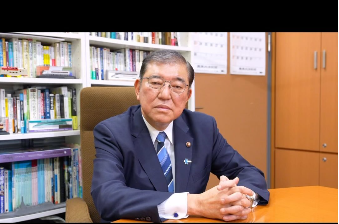
(Photo : Shigeru Ishiba (Iinstagram.com))
- Japan's ruling coalition lost its majority in the lower house, leading to political uncertainty.
- The Liberal Democratic Party (LDP) won 191 seats, a significant decrease from the 247 seats it held prior to the election.
- The election results reflect public outrage over the LDP's funding scandal, leading to the coalition's poor performance.
- Prime Minister Shigeru Ishiba plans to seek cooperation from other parties to stabilize his government.
In a significant political shift, Japan's ruling coalition, comprising the Liberal Democratic Party (LDP) and its partner Komeito, has lost its majority in the lower house following the general election.
This development has plunged the nation into a state of political uncertainty, exacerbating the challenges already faced by its economy. The coalition managed to secure only 215 of the 465 seats in the influential lower house of Parliament, falling short of the 233 seats required for a majority.
The LDP, on its own, won 191 seats, a significant decrease from the 247 seats it held prior to the election. This is the first time in 15 years that the ruling coalition has failed to secure a majority in the general election, the last instance being in 2009. The main opposition, the Constitutional Democratic Party (CDP), has seen a significant increase in its representation, with its seat count rising from 98 to 148.
Election Outcome Reflects Public Sentiment
The head of the CDP, Yoshihiko Noda, has interpreted this outcome as a clear indication of the voters' desire for political reform. The election results were largely in line with media predictions, reflecting the public's continued outrage over the LDP's funding scandal. This scandal has undoubtedly played a significant role in the coalition's poor performance in the election.
In response to the election results, Prime Minister Shigeru Ishiba has acknowledged the public's harsh judgment. He has announced plans to seek cooperation from other parties that align with his administration's policies, in an attempt to stabilize his government. This strategy is likely to intensify inter-party negotiations across both ruling and opposition blocs as they navigate legislative priorities and coalition building.
The Road Ahead for Japan's Political Landscape
The constitution mandates that the Diet must convene a special session within 30 days of the election date to elect the Prime Minister. Typically, if the ruling coalition has a majority, the Prime Minister is elected in the first round of voting. However, given the current circumstances, if no candidate receives a majority of the votes in the first round, the top two candidates will proceed to a runoff.
The election saw a total of 1,344 candidates vying for seats, an increase from the 1,051 candidates in the last election in 2021. On election day, public broadcaster NHK conducted an exit poll at more than 4,000 polling stations nationwide, gathering responses from nearly 318,000 voters out of 492,000 surveyed, a response rate of 64.8%.
This political upheaval in Japan echoes similar events in history. For instance, in 2009, the LDP lost its majority in the lower house, leading to a period of political instability. The current situation, however, is further complicated by the ongoing funding scandal involving the LDP, which has significantly eroded public trust in the ruling coalition.









